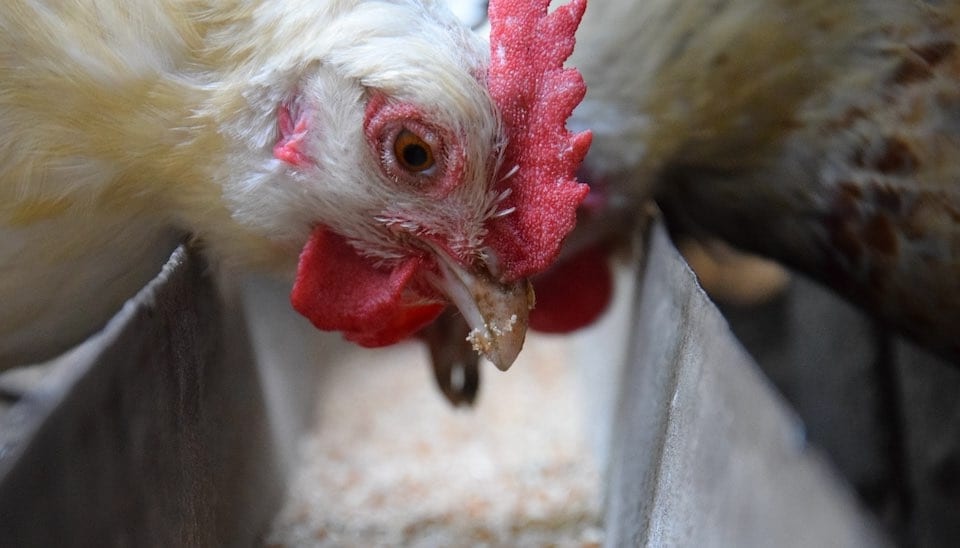10 Best Protein Sources for Chickens
10 Best Protein Sources for Chickens
Keeping your chooks in top shape starts with their diet, and protein is one of the most important nutrients they need. Protein is the building block for feathers, eggs, and healthy muscles.
A quality feed matched to your chickens’ stage of life (like layer pellets for laying hens or starter feed for chicks) already has the right amount of protein and minerals. That’s the simplest way to give enough protein to your hens.
But what if your hens seem a bit run down? Maybe they’re moulting, struggling to grow feathers back, or your chicks need extra protein to grow strong.
For moments like these, you can boost their diet with a treat or high-protein foods. The trick is knowing when they really need it and how to avoid upsetting the balance of their feed. And don’t forget, a good feeder saves you money and feed—less mess means more nutrients go to your chooks.
We recommend checking out our waste-reducing chicken feeders to keep your feed in the feeder, not scattered on the ground.
Key Takeaways about Protein for Chickens
- Chickens need protein to stay healthy and productive. Feathers, eggs, and muscles all need protein.
- Choose a quality feed with at least 16-22% protein depending on the stage of life. Lower-quality feeds like cheap scratch mixes often don’t provide enough protein.
- If your chickens free-range or eat kitchen or garden scraps, this can lower their overall protein intake, so you may need to supplement their diet.
- Adding extra protein is helpful during times like moulting, chick growth, or cold weather.
- Mealworms, cooked eggs, and black soldier fly larvae are excellent high-protein treats for chickens.
- A reliable feeder like Dine-A-Chook’s waste-reducing feeders ensures that feed doesn’t go to waste.
Why Protein is Key for Chooks
Protein is essential for chooks because it’s the main ingredient in eggs, feathers, and muscle.
Laying hens need about 16% protein in their diet to keep laying strong eggs, while chicks need even more, up to 20%, to support their rapid growth.
Most of your chickens’ diet should come from a complete feed made for their stage of life, like layer pellets, grower feed, or chick starter. But not all feeds are created equal. Some cheaper scratch mixes or lower-quality feeds might have only 15% protein—or less—which isn’t enough to meet a laying hen’s needs. Always check the protein content when choosing a feed.
If your chooks free-range or get lots of scraps, this can also affect their total protein intake. While kitchen scraps or garden greens like lettuce and veggie leaves might be nutritious, they’re usually low in protein. If scraps or foraging make up a big part of their diet, you might need to balance it out with higher-protein options.
The 10 Best Protein Sources For Chickens
If you need to add some extra protein to your chickens' diet, here are our recommendations to give some extra protein for chickens.
1. Mealworms
Mealworms are a classic treat for chickens, and for good reason. They’re about 50% protein and packed with nutrients. Offer these as treats, especially during moulting when your chooks are regrowing feathers.
2. Black Soldier Fly Larvae
Another excellent option is black soldier fly larvae, which are sustainable and packed with protein and calcium. These are especially good for laying hens since calcium helps with strong eggshells.
3. Cooked Eggs (But Prepare Them Right...)
Feeding cooked eggs back to your chickens might feel odd, but they’re one of the best protein sources available. Just make sure they’re cooked to prevent egg-eating habits.
You can also feed the egg shells to your chickens for some extra calcium and minerals.
4. Fish Scraps
If you’ve got leftover fish, your chooks will love it. Fish is rich in protein and omega-3s, which are great for egg quality. Keep it as an occasional treat to avoid strong-tasting eggs. And make sure it's cooked and fresh.
5. Meat Scraps
Cooked lean meat is a high-protein boost your chooks will gobble up. Just avoid anything fatty, salty, or seasoned and make sure to remove uneaten meat scraps after an hour or two to avoid spoiling or attracting pests.
6. Pumpkin Seeds
If you’ve got a pumpkin patch or leftover pumpkins, save the seeds for your chooks. They’re rich in protein and may have natural deworming properties. It’s a seasonal treat they’ll love, but it’s best to feed seeds in moderation.
7. Peas and Lentils
Peas and lentils are high in protein and a good plant-based option. Just be sure to cook them first, as raw legumes can contain toxins that can be fatal to your chickens. Add occasionally for a balanced boost.
8. Quinoa
Cooked quinoa is a nutrient-rich addition to your chickens’ diet. It’s high in protein and easy for them to eat, making it a great option if you’re looking for variety.
9. Yoghurt
Plain yoghurt is a great protein source that also supports gut health with probiotics. It’s especially helpful if your chooks are recovering from illness or stress. Don't give them sugary or flavoured yoghurts—stick to plain varieties. Also, too much yogurt can give them tummy issues. A spoonful every now and then is enough.
10. Bugs and Insects
Chickens are natural foragers, and the bugs they find while scratching around are a perfect protein source. Beetles, worms, and ants all make for nutritious snacks. Letting your chooks free-range in the garden can supplement their protein intake naturally.
Practical Protein Tips for Different Flock Types
Laying Hens
Laying hens need feed with at least 16% protein to maintain consistent egg production. If your hens are slowing down, check their diet for low-protein scraps or poor-quality feed. During moulting, boost protein with treats like mealworms or black soldier fly larvae to help with feather regrowth.
Growing Chicks
Chicks grow fast and need feed with 18–20% protein in the first 8 weeks of life. Starter feed is specially designed for their needs. If you’re raising meat birds, they may require even higher protein levels to support rapid muscle development.
Free-Range Flocks
Free-ranging chickens naturally forage for protein-rich bugs, but their total diet can still fall short if they rely too much on greens or scraps. Keep their base diet as a quality layer or grower feed and use treats like cooked eggs or insects to balance it out.
Healthy Chooks Start with the Right Feed
Providing enough protein doesn’t have to be complicated. The best protein for chickens is a complete feed with some occasional high-protein foods like mealworms.
A good feed matched to your flock’s life stage does most of the work, and supplements can help during moulting, chick rearing, or cold weather. Just remember that balance is key—too much protein can upset their digestion, while too little leads to poor egg production and feather quality.
Don’t let feed go to waste! Dine-A-Chook’s waste-reducing feeders help ensure every pellet goes to your chooks, not the ground.
If you’ve got questions about your flock’s diet, contact us for expert advice.
Happy chicken keeping!
Related posts:






